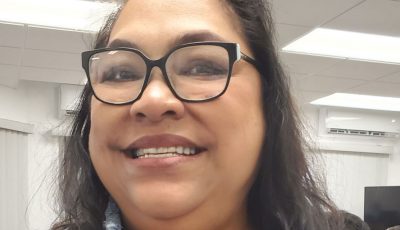SHEFA board to update priority field of study’s course listing
Courses listed on the Saipan Higher Education Financial Assistance’s priority field of study will soon be revised after members of the SHEFA board agreed to revisit the program.
Board chair Josephine Sablan disclosed that she is now working on a “new list” for the priority field of study program and sought other board members’ input and suggestions.
“The [current] listing is very general and we need to enhance it. This is why I keep bringing this issue to the board,” according to Sablan, who referred the matter to the policy and procedures committee for further deliberation.
The potential changes will be incorporated in the revisions on the agency’s bylaws, which is also up for board review.
SHEFA administrator Merissa S. Rasa said the proposed revised bylaws is on its third draft and would be up for board approval at their next meeting.
Board member John Pialur said that revisiting the list is also in line with SHEFA’s desire to help students of the Northern Marianas Trade Institute who, under the current rules and regulation, are excluded from receiving SHEFA grants.
The priority field of study is among the three scholarship programs administered by SHEFA. The other two are grant in aid and incentive award.
Saipan Tribune learned that the priority field of study is not only an incentive for students to maintain a high grade point average, but is also used to encourage SHEFA scholars to enter into a specialty area of employment that is urgently needed and in high demand on Saipan. Freshmen and sophomores are not eligible for this award.
Though the grade point average requirement is maintained at a minimum of 2.5, the priority of field study scholar must formally declare a major in accordance with the range of studies listed in SHEFA regulations.
Courses on the list of priority field of study are accounting; nursing; teaching with specialized special education/early childhood education/library science/counseling/bilingual education; business management and administration. Also included are hospitality and information technology with emphasis on anthropology/sociology for teaching; biology (science) for teaching; criminal justice leading to forensic science; lab technology; psychology other than leading to counseling; human resources development/personal management; social worker.
It also includes mathematics for teaching; engineering/architect; medical and allied fields including psychiatry; environmental studies/conservation (e.g., natural resources, volcanology, marine biology, fish and wildlife, meteorology and archeology); and computer graphics, including technical or specialized trades such as journalism, management information, computer programming and other fields of study sanctioned by the board.
Like the grant-in-aid, the priority field of study recipient must enroll fulltime and complete within a given term a minimum course load of 12 credits for undergraduates and 9 credits for graduate and advance students.
Based on the SHEFA’s annual report in 2012, a big portion of the SHEFA scholars are taking or have taken social sciences and fine arts, representing 35 percent of students. These programs include behavioral science, sociology, psychology, political science, communications, art, and law.
Twenty-six percent have taken or are taking education course; 12 percent choose business courses; 15 percent choose medical and allied fields including biology, nursing, physical therapy, and dentistry. Accounting only yielded 6 percent while 5 percent pursue computer science and information technology courses.



























